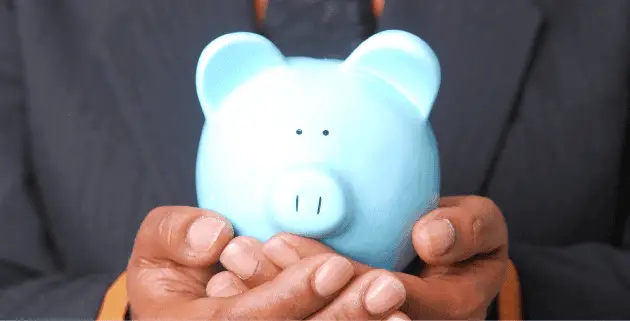Gambling revenues perform well in Africa
According to the latest PwC report, gambling held up very well in the last year despite a stagnated economy. Gross gambling revenues posted their largest annual increase over the past five years, with bingo gross gambling revenues rising by 86%, sports betting by 19.3% and casino gambling by 10.5%. Gross gambling revenues for limited payout machines (LPMs) rose by 25.7%. Overall gross gambling revenues rose 13.4% in 2012. Gross gambling revenues as a whole are expected to expand from R20.9 billion in 2012 to R29.8 billion in 2017, a 7.4% compound annual increase.

For the first time the study includes Nigeria and Kenya. However, only casino gambling is reported upon for these countries. Of the three countries, South Africa has the largest overall gambling market as well as the biggest land-based casino gambling market. Gross land-based casino gambling revenues totalled R16.4 billion in South Africa in 2012, compared with only R310 million in Nigeria and R180 million in Kenya.
Nikki Forster, PwC Gambling Industry Leader for South Africa, says: “The South African gambling industry is vibrant and exciting, while at the same time facing the challenge of a changing regulatory environment and the impact of reduced consumer spending during an economic downturn.
“The overall casino market in Nigeria is limited due to the low number of licences in issue reflecting the high cost of investment in casino operations versus the limited size of the gambling market. Consequently, the casino market in Nigeria is only a fraction that of South Africa.
“In Kenya, gambling laws are much more open than in Nigeria or South Africa. Gambling is considered a leisure activity that generates tax revenue.”
The South African gambling market
Casinos are by far the largest component of the gambling market with gross gambling revenues at R16.4 billion in 2012, which is 78% of total gross gambling revenue and 71% of the market with the national lottery included. The casino market has virtually reached its maturity with 38 out of a possible 40 casinos already licenced and 37 in operation. As a result, expansion in the number of casinos will not drive growth for this segment. Instead, casino operators are investing in their existing facilities in order to boost revenue.
Sports betting and horse racing gross gambling revenue totalled R2.6 billion in 2012, the second-largest category behind casinos. Bingo was the fastest-growing category with its 86% increase, the result of the introduction of bingo into Mpumalanga. Gross gambling revenue for LPMs rose to R1.5 billion.
“South Africa has the most mature market and we expect it will be the slowest growing with a 5% compound annual increase in casino gross gambling revenue to R20.9 billion ($2.1 billion)in 2017,” says Forster.
Gambling taxes and levies
Gambling taxes and levies totalled R2.1 billion in 2012, up 14.3% from 2011, benefitting from the 13.4% increase in gross gambling revenues and a slight increase in payments. The increase in payments refers to the percentage of gross gambling revenue accounted for by taxes and levies. In 2011, that percentage was 9.953% and in 2012 it edged up to 10.032%.
Almost 40% or R836 million of the total 2012 gambling taxes and levies were generated in Gauteng. KwaZulu-Natal and Western Cape each contributed more than R400 million.
A withholding tax was initially considered in South Africa but due to the difficulty of administering its collection, it has been replaced with an additional 1% tax on gross gambling revenues scheduled to take effect later in 2013.
A 2% tax rate increase for casinos in the Western Cape took effect in September 2013. Overall gambling taxes and levies will expand by 10.7% compounded annually for gambling, from R2.1 billion in 2012 to R3.5 billion in 2017.
Casinos also pay deemed output VAT to the National Treasury on the gross gambling revenues that they have earned. This is a direct cost to the casino operators, and any increase in the VAT rate would reduce a casino’s income. The estimated deemed output VAT collected from casinos in 2012 amounted to R2 billion. Casinos paid R3.6 billion in gambling taxes, levies and deemed output VAT in 2012. In total, gaming taxes, levies and VAT amount to 22% of casino gross gambling revenues in 2012.
Casino gambling
Gauteng was the leading province in casino gross gambling revenues at R7.2 billion in 2012, 44.1% of the total. KwaZulu-Natal and the Western Cape were next at R3 billion and R2.4 billion respectively. These three provinces accounted for 76.8% of total casino gross gambling revenues Gross gambling revenues in the casino industry are projected to rise at a 5% compound annual rate to R20.9 billion in 2017 from R16.4 billion in 2012.
Limited payout machines
LPMs are primarily located in bars, clubs and restaurants. Although growth has been high in percentage terms, the market remains well below its potential as only a fraction of the authorised machines are in place. A total of 50, 000 machines are authorised in two rollout phases of 25,000 each. As at mid-2013, there were about 10,000 LPMs installed out of 25,000 in the first rollout phase. As a result, the number of LPMs in place represent about 20% of the total authorisation and 40% of the authorisation for the first rollout.
In contrast with the casino market, Gauteng ranked only third in LPM in gross gambling revenues at R242 million in 2012, representing 16.4% of the total. The Western Cape had the largest LPM market in 2012 at R481 million with KwaZulu-Natal next at R339 million.
As LPM machines continue to be installed in new locations and with the possibility of increases in the maximum bet and payout, there is still ample room for growth in this sector of the market.
Sports betting
Sports betting includes bookmaking and pari-mutuel wagering on horseracing and other sports events. This is the only category where online gambling is permitted.
Horseracing is the dominant component of the market with R1.8 billion in gross gambling revenues in 2012, more than twice the R819 million for sports events. However, sports betting has been the faster-growing category with gross gambling revenues rising by 71.3% in 2012 compared with the 4.5% increase for horseracing. “The proliferation of sports betting shops and online wagering are driving this component of the market. It is expected that sports betting will surpass horseracing within the next five years,” adds Forster.
Bingo
Bingo is a small category that until recently was available only in Gauteng. The introduction of licenced bingo in Mpumalanga in 2012 propelled the market. Applications for bingo licences have been submitted and accepted in KwaZulu-Natal and the North West province, with bingo expected to be introduced in these provinces within the next five years.
Bingo is also expected to continue to be the fastest-growing category during the next five years as it expands into other provinces. Gross gambling revenues will rise from R437 million in 2012 to a projected R1.4 billion in 2017.
National lottery
The national lottery has been the slowest-growing segment in recent years. Slow growth in ticket sales is expected for 2013, reflecting the slowing economy, with sales growing faster from 2014 as the economy is expected to improve. National lottery ticket sales, or turnover, rose by 3% in 2012, a much slower increase compared with growth in gambling. The national lottery is expected to remain a relatively slow-growing category with turnover rising by only 3.4% on a compound annual basis.
Casino gambling in Nigeria
Currently there are only three licenced casinos in Nigeria. There are also a number of unlicenced casinos in operation but these are operating illegally. Casino gross gambling revenues have grown at double-digit rates in four of the past five years, including a 19.2% increase in 2012 to $31 million. Gross gambling revenues are expected to expand at a projected 16.3% compound annual rate to $66 million in 2017.
Casino gambling in Kenya
Almost all forms of gambling are permitted in Kenya, including online and mobile gambling. Growth slowed in 2012 to 5.9% as the economy moderated, but a pickup in economic growth in 2013 is expected to lead to a return to double-digit growth. The Government has announced plans to impose a 20% withholding tax on gambling winnings. “In other countries, such taxes have often had a dampening effect on wagering, and we expect that will occur in Kenya as well,” comments Forster.
Gross gambling revenues totalled $18 million in Kenya in 2012 compared with $31 million in Nigeria. Fuelled by a rebounding economy and continued growth in tourism, casino gross gambling revenue is projected to rise to $33 million in 2017.
Conclusion
Forster says: “The gambling industry is usually associated with glamour, wealth. As a business, however, the margins are low, a large portion of the costs are fixed, regulatory compliance is stringent and profitability depends on volume.
“The industry continues to contribute significant tax revenues to provincial and national government. It has created jobs and contributes to social and infrastructure spending in the areas in which it operates.
“The outlook for the industry remains positive and the further rollout of limited payout and bingo machines and the possible introduction of online gambling will further contribute to the expected growth in revenues.”
About PwC
PwC firms help organisations and individuals create the value they’re looking for. We’re a network of firms in 157 countries with more than 184,000 people who are committed to delivering quality in assurance, tax and advisory services. Tell us what matters to you and find out more by visiting us at www.pwc.com.





